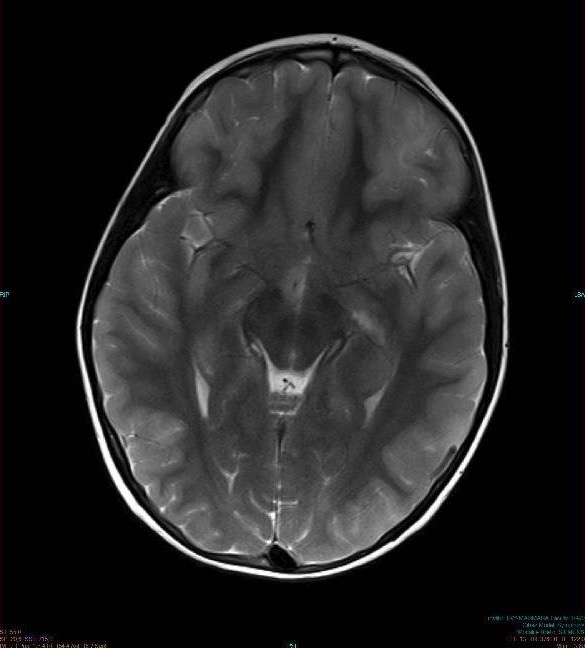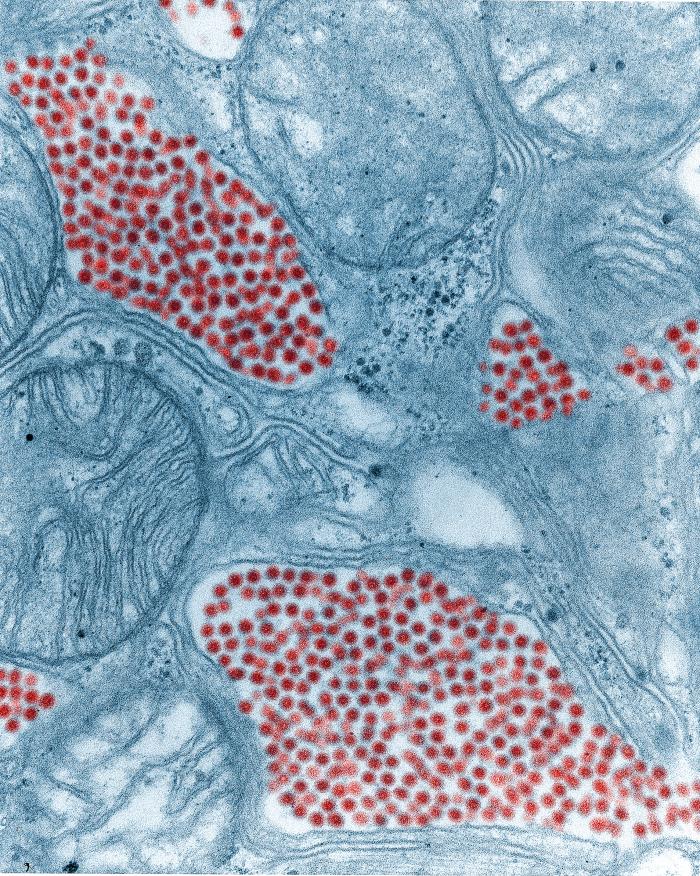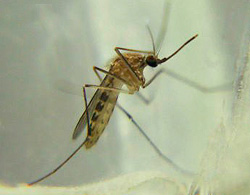Playlist
Show Playlist
Hide Playlist
Encephalitis: Signs & Symptoms
-
Slides Encephalitis InfectiousDiseases.pdf
-
Download Lecture Overview
00:02 The clinical features of encephalitis are quite variable, some serious, others less serious. 00:11 Generally, what you see is some sign of infection, plus ome sign of central nervous system dysfunction. 00:18 The classic features would be fever, headache and altered mental status. 00:24 Because the brainstem is involved, particularly the hypothalamus, there's maybe loss of temperature regulation, high or low temperature. 00:37 And personality changes, particularly common at the frontal lobes, are involved, and that's most mmon with herpes simplex virus. 00:49 You may or may not have focal neurologic signs, like hemiparesis, aphasia, ataxia, cranial neuropathy or mild clonus. 01:04 Seizures may occur. 01:07 And with certain viruses, the signs of parkinsonism are more common, particularly West Nile virus, St. Louis virus and Japanese encephalitis virus. 01:19 So, they may present with or leave the patient with Parkinson's. 01:25 Trying to determine the cause may be difficult. 01:29 There may be seasonal clues. 01:31 For example, if it occurs in the summer or early fall, we’re thinking of arboviruses. 01:39 If it's late fall and winter, when the insects are not out, we would think – and people are indoors, we would think of the lymphocytic choriomeningitis virus, particularly in households that have rats and mice. 01:57 There are some geographic clues and I've always had trouble remembering these There are some geographic clues and I've always had trouble remembering these and you probably will too or have if you've studied this. 02:07 There are certain viruses that seem to come from Africa and covered the entire United States and that is West Nile virus. 02:19 And then there is St. Louis encephalitis virus. 02:24 That seems to cover the entire United States. 02:26 So, the way I would remember it is, you've come a long way from St. Louis. 02:31 You've covered the entire United States. 02:35 The one that seems to behave and involve the eastern seaboard is eastern equine encephalitis. 02:42 It covers the eastern seaboard and the Great Lake states. 02:48 This one is totally counterintuitive. 02:53 California encephalitis virus? That should be out in California, shouldn't it? Well, no, it turns out to be most common in the east of the Mississippi River. 03:04 Go figure! There may be some clues on physical examination that will lead you to a diagnosis, such as a rash. 03:15 If the patient has something resembling chickenpox or has zoster, you would think of the varicella zoster virus. 03:24 West Nile virus is frequently associated with a rash. 03:28 Enteroviruses commonly are associated with a rash. 03:33 HIV, measles virus, rubella virus, those are clues that the encephalitis is due to one of those. 03:41 If a patient presents with keratitis, orchitis or oophoritis, we would think of mumps, but not usually in developed countries where we have the measles mumps and rubella vaccine. 03:58 If a patient has encephalitis and oral ulcers, to the top of the list comes herpes simplex and the enteroviruses. 04:09 caused by one the Coxsackieviruses.
About the Lecture
The lecture Encephalitis: Signs & Symptoms by John Fisher, MD is from the course CNS Infection—Infectious Diseases.
Included Quiz Questions
What is the typical geographic distribution of the St. Louis encephalitis virus in the United States?
- All over the country
- Localized to Missouri
- States along the border of the Mississippi River
- States east of the Mississippi River
- Rocky Mountains
Where are the majority of reported encephalitis cases due to California encephalitis virus in the United States?
- East of the Mississippi River
- Localized to California
- Localized to Southwestern United States
- Widely distributed across the United States
- In the Rocky Mountains
A 48-year-old man with confusion and a maculopapular rash over the right hemithorax in a single dermatomal distribution is most likely to have which of the following diagnoses?
- Varicella zoster virus encephalitis
- Eastern equine encephalitis virus infection
- Herpes simplex virus type 1 infection
- California encephalitis virus infection
- West Nile virus encephalitis
A 7-year-old boy is brought to the emergency department because of bizarre behavior for about 6 hours. On physical examination, grouped vesicles are observed on an erythematous base on the buccal mucosa. Which of the following pathogens is the most likely cause?
- Herpes simplex virus
- Varicella zoster virus
- West Nile virus
- Eastern equine virus
- Japanese encephalitis virus
Which of the following types of exposures may transmit the lymphocytic choriomeningitis virus to humans?
- Rodent saliva
- Tick bite
- Flea bite
- Mosquito bite
- Cat scratch
Customer reviews
5,0 of 5 stars
| 5 Stars |
|
5 |
| 4 Stars |
|
0 |
| 3 Stars |
|
0 |
| 2 Stars |
|
0 |
| 1 Star |
|
0 |







